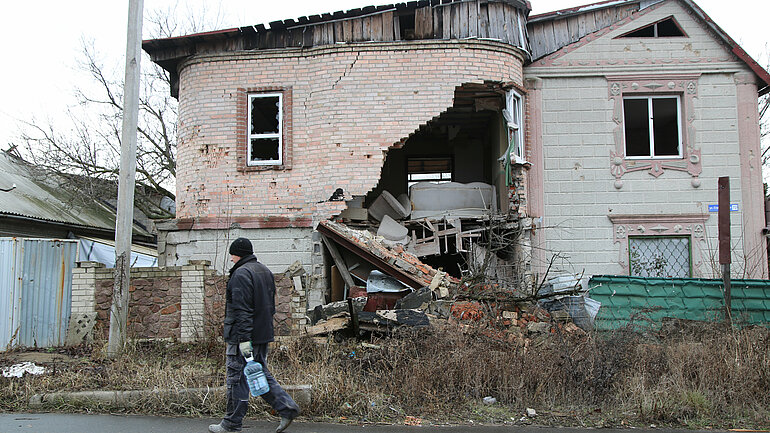Identities in Wartime: the Case of Ukraine
Identities in Wartime: the Case of Ukraine

Project description
In the social sciences the causes of wars are better researched than their dynamics and effects. This is partly due to a scarcity of empirical data. This project generates data on those directly affected by the war – the population of the Donbas region and the people fleeing the war zone – and on Ukrainian society as a whole.
ZOiS surveys carried out in 2016 and 2019 were a first attempt to analyse the day-to-day lives, political attitudes, and identities of the population in the Donbas, including the territories not currently controlled by Kyiv. A further survey conducted by ZOiS in 2016 is one of the few attempts to date to compile a demographic and political profile of those displaced by the war (the total number of internally displaced persons and people who have fled to Russia is estimated to be in the region of 2.5 million).
Even beyond the war zone, the war is having an impact on attitudes and identities across Ukraine. The project has been charting these developments since 2017 through a set of questions included each year in the representative Omnibus surveys of the Kyiv International Institute of Sociology (KIIS). This data points to the strengthening of a state-centred identity.
Methodology
- Opinion polls in both parts of the Donbas
- Surveys of refugees from the Donbas in Ukraine and Russia
- Representative survey in Ukraine (excluding Crimea and the territories not controlled by Kyiv in the Donbas)
Key questions
- What effects is the war having on the attitudes and identities of those directly involved and on the entire population of Ukraine?
- How is the significance of ethnic or state-centred identities changing in Ukraine over a prolonged period shaped by crises?
- What methodological challenges does public opinion research in crisis situations present?
![[Translate to Englisch:]](/fileadmin/media/_processed_/4/3/csm_Sasse_2022__Riedl__27effde830.jpg
)